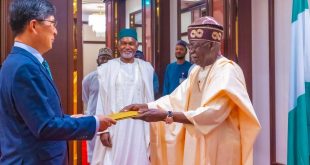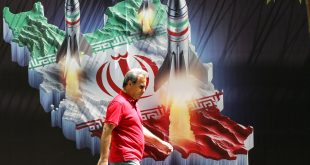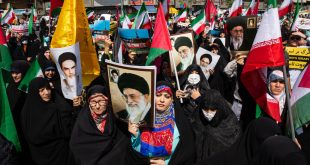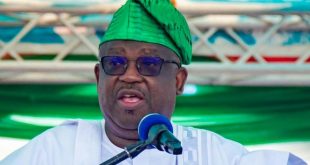UNITED NATIONS, Jan 29 (IPS) – Lebanon should “defend and protect” the talents, data, and expertise of its individuals so as to transfer ahead with the nation’s improvement, in accordance with Christophe Abi-Nassif, the Lebanon programme director for the Center East Institute (MEI).
“Shielding and preserving no matter is left of Lebanon’s human capital must be the principle policy-making concern in the meanwhile,” Abi-Nassif informed IPS. “We’re in fire-fighting mode proper now and if you’re a fire-fighter, you prioritise saving human lives.”
He spoke with IPS following a panel on COVID-19 built-in restoration insurance policies for the nation, organised by the United Nations Division of Financial and Social Affairs (DESA).
On the panel, consultants spoke on a variety of points from the nation’s personal and public sector partnerships, the well being sector and its COVID-19 response, affect on kids, and the challenges confronted by Syrian refugees.
The panel passed off on Wednesday, Jan. 27, simply because the nation was embroiled in massive protests in response to COVID-19 restrictions and the worst financial disaster in its historical past.
“What’s the level of every other coverage priorities anyway when your individuals are impoverished, dying at hospital doorways, or emigrating?” Abi-Nassif added. “Any severe effort would entail offering rapid monetary, logistical and psychological well being assist to households dwelling beneath the poverty line since excessive poverty breeds unrest and chaos.”
Lebanon is on the intersection of 1 disaster after the opposite: the COVID-19 pandemic, the August 2020 explosion — which left an estimated 200,000 individuals homeless or dwelling in properties with out home windows or doorways — and an especially excessive poverty charge. The World Financial institution estimates the poverty charge within the nation might go as much as 45 %, with the speed of maximum poverty nearing 22 %, and a projected 19.2 % decline in GDP.
This dire scenario is affecting every marginalised group of individuals in a different way: from kids to refugees.
Yukie Mokuo, a consultant with the UN Worldwide Kids’s Emergency Fund (UNICEF), identified an infinite lack of social safety within the nation.
“This can be a actually unprecedented disaster for youngsters,” she stated, citing the nation’s poverty charge. “About 1.2 million kids are impacted of their entry to schooling, and little one labour has elevated, together with early marriage.”
Dr. Rita Rehayem, a consultant for the Nationwide Committee for Sustainable Improvement, shared the completely different challenges that civil society organisations are experiencing beneath the present set of crises. Whereas the variety of weak populations elevated throughout the COVID-19 pandemic, so did the price of working their work, she stated. And that started so as to add up — and affected their work.
“Extra price range was wanted to buy PPEs, to guard employees and volunteers however in addition to the beneficiaries. Many further budgets have been allotted for this, and improvement tasks have been sadly placed on maintain,” she stated.”Though we in Lebanon are in determined want of improvement tasks, the price range or the funds have been actually allotted for humanitarian help.”
Whereas the Lebanese inhabitants is being impacted by these completely different crises, the Syrian refugee inhabitants within the nation can be struggling immensely, in accordance with Karolina Lindholm, Deputy Consultant of UN Excessive Commissioner for Refugees (UNHCR) in Lebanon, stated on the panel.
Lebanon’s Syrian refugee neighborhood — greater than half of whom are beneath 18 — is dealing with a variety of challenges beneath the present circumstances: issue shopping for meals resulting from lack of cash, lack of ability to pay hire, lack of livelihoods and employments, diminished entry to healthcare resulting from lack of cash, and elevated morbidity charge among the many refugees.
A psychological well being disaster locally has additionally led to spike in circumstances of suicide, Lindholm added, citing circumstances of self-immolation among the many refugees.
“The erosion of resilience could be very, very hanging,” Lindholm stated.
Abi-Nassif expressed concern that on prime of those challenges, the refugee neighborhood is perhaps topic to extra discrimination.
“As an increasing number of individuals compete for fewer assets comparable to meals provides or vaccines, one factor I fear about is a rise in excessive right-wing rhetoric and violence in opposition to refugees,” he informed IPS.
With demonstrators out on the streets protesting the present financial and political crises, Abi-Nassif says to stay cautious in opposition to conspiracy theories which can be typically plotted in opposition to protesters.
“In Lebanon, even distress and tragedy are politicised. The notion that individuals are taking to the streets for the pure sake of voicing grievances is overseas to the political class,” he stated. “Within the latter’s eyes, it’s all the time about conspiracy and overseas interference. Though this risk might maintain typically in some locations, it can’t maintain in every single place on a regular basis.”
© Inter Press Service (2021) — All Rights ReservedOriginal source: Inter Press Service
 Top Naija News: Nigerian News, Breaking News Nigeria and World News Top Naija News is a daily news publication in Nigeria, delivering the latest breaking news in Nigeria and around the world.
Top Naija News: Nigerian News, Breaking News Nigeria and World News Top Naija News is a daily news publication in Nigeria, delivering the latest breaking news in Nigeria and around the world.




